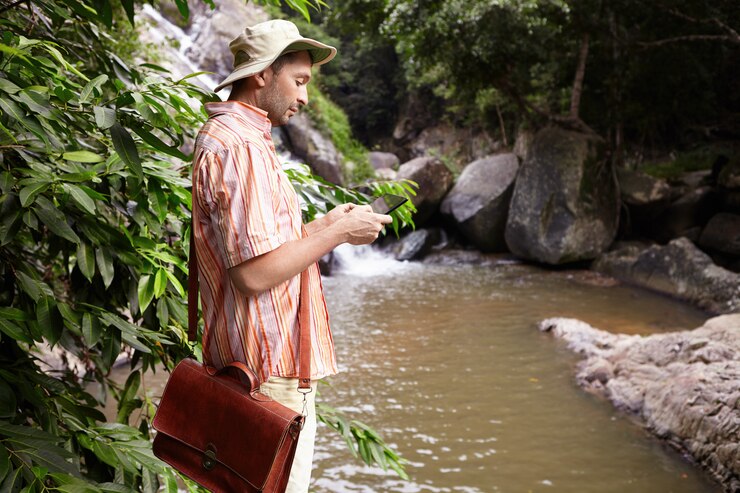Travel opens up countless opportunities to immerse yourself in diverse cultures, traditions, and lifestyles. One of the most transformative ways to deepen your travel adventures is by learning a new language. Far more than just memorizing vocabulary and grammar rules, acquiring even a basic level of conversational skills in a foreign tongue can unlock doors to authentic interactions, insider insights, and personal growth. This article redefines the value of language learning for travel, outlines its multifaceted benefits, and shares practical tips to help you embark on your linguistic journey.
The Transformative Impact of Language on Travel
Bridging Cultural Divides
When you learn even a few key phrases in the local language, you immediately signal respect and a genuine interest in the culture you are visiting. This effort can:
- Forge Real Connections: Engage locals in a way that transcends standard tourist interactions, leading to more meaningful exchanges.
- Enhance Authenticity: Navigate daily scenarios—from ordering food to bargaining at local markets—with greater ease and authenticity.
- Show Cultural Appreciation: Demonstrating even basic language skills shows that you value the local culture, often resulting in warmer and more welcoming responses.
Boosting Confidence and Self-Reliance
Gaining proficiency in a new language empowers you in numerous ways:
- Ease Navigation: Communicate more effectively in public transportation, ask for directions, and handle everyday tasks independently.
- Strengthen Problem-Solving: Overcoming language barriers builds your ability to adapt and solve problems on the fly.
- Personal Empowerment: Every conversation in the new language bolsters your confidence, making you a more independent and self-assured traveler.
Unlocking Hidden Treasures
Learning the local language often reveals experiences that mainstream tourists might miss:
- Discover Local Secrets: Tap into insider recommendations about off-the-beaten-path spots, local eateries, and cultural events.
- Engage in Authentic Traditions: Participate in community activities, festivals, or traditional ceremonies with a deeper understanding.
- Tailored Experiences: Personal interactions with residents can lead to unique suggestions and personalized experiences that enrich your journey.
Practical Strategies for Mastering a New Language
1. Build a Strong Foundation
Focus on essential language skills before you embark on your trip:
- Learn Key Phrases: Concentrate on everyday expressions, such as greetings, common questions, and practical vocabulary related to food, directions, and basic conversation.
- Utilize Language Apps: Platforms like Duolingo, Babbel, or Memrise can help you build a solid foundation through engaging lessons and regular practice.
- Invest in a Phrasebook: A compact, travel-friendly phrasebook can be a handy reference when you’re on the move.
2. Immerse Yourself Ahead of Your Trip
Begin your language journey well before you arrive at your destination:
- Engage with Local Media: Watch films, listen to music, or tune into podcasts in the target language to familiarize yourself with pronunciation and context.
- Read Simple Texts: Start with children’s books or beginner-level articles to gradually build your reading comprehension.
- Language Exchange: Connect with native speakers through language exchange websites or apps like Tandem or HelloTalk to practice conversational skills and receive real-time feedback.
3. Practice Actively While Traveling
Once you’re in the destination, immerse yourself in the language as much as possible:
- Enroll in a Local Class: Many destinations offer short-term language courses for travelers, providing a structured learning environment.
- Engage in Daily Interactions: Use your new language skills in practical situations—order food, ask for directions, or simply chat with locals to reinforce your learning.
- Leverage Technology: Keep translation apps handy to assist when you encounter unfamiliar words, but challenge yourself to use the language as often as possible.
4. Maintain a Consistent Learning Routine
Consistency is key to language retention and improvement:
- Set Aside Daily Practice Time: Even dedicating just 10–15 minutes each day can lead to steady progress over time.
- Use Flashcards: Whether digital or paper, flashcards can help you regularly review vocabulary and essential phrases.
- Track Your Progress: Maintain a language journal where you note down new words, expressions, and any interesting interactions. Reflect on your progress and adjust your learning strategies as needed.
Overcoming Common Challenges
Embrace Imperfection
Learning a new language involves making mistakes—an inevitable and valuable part of the learning process:
- Be Patient with Yourself: Recognize that fluency takes time. Celebrate small achievements and view errors as learning opportunities.
- Stay Positive: Remind yourself that every conversation, no matter how imperfect, is a step toward greater proficiency.
Keep the Motivation Alive
Staying motivated is crucial for continuous learning:
- Set Achievable Milestones: Break your language learning journey into manageable goals and celebrate when you reach them.
- Connect with Fellow Learners: Join language classes or online communities where you can share experiences and support each other.
- Immerse in Culture: The more you connect with the cultural aspects of the language, the more inspired you will be to learn and engage.
Conclusion: Open New Doors with Language
Learning a new language for travel is an investment that pays off in countless ways. It not only makes navigating new environments easier but also enriches your experiences by fostering authentic interactions and uncovering hidden cultural gems. Embrace the challenge of language learning with an open mind and a positive attitude, and soon you’ll find that every new word brings you closer to the heart of the places you visit.
Start your linguistic journey today—download a language app, pick up a phrasebook, or connect with a native speaker—and watch as your travels become more immersive, rewarding, and transformative.


